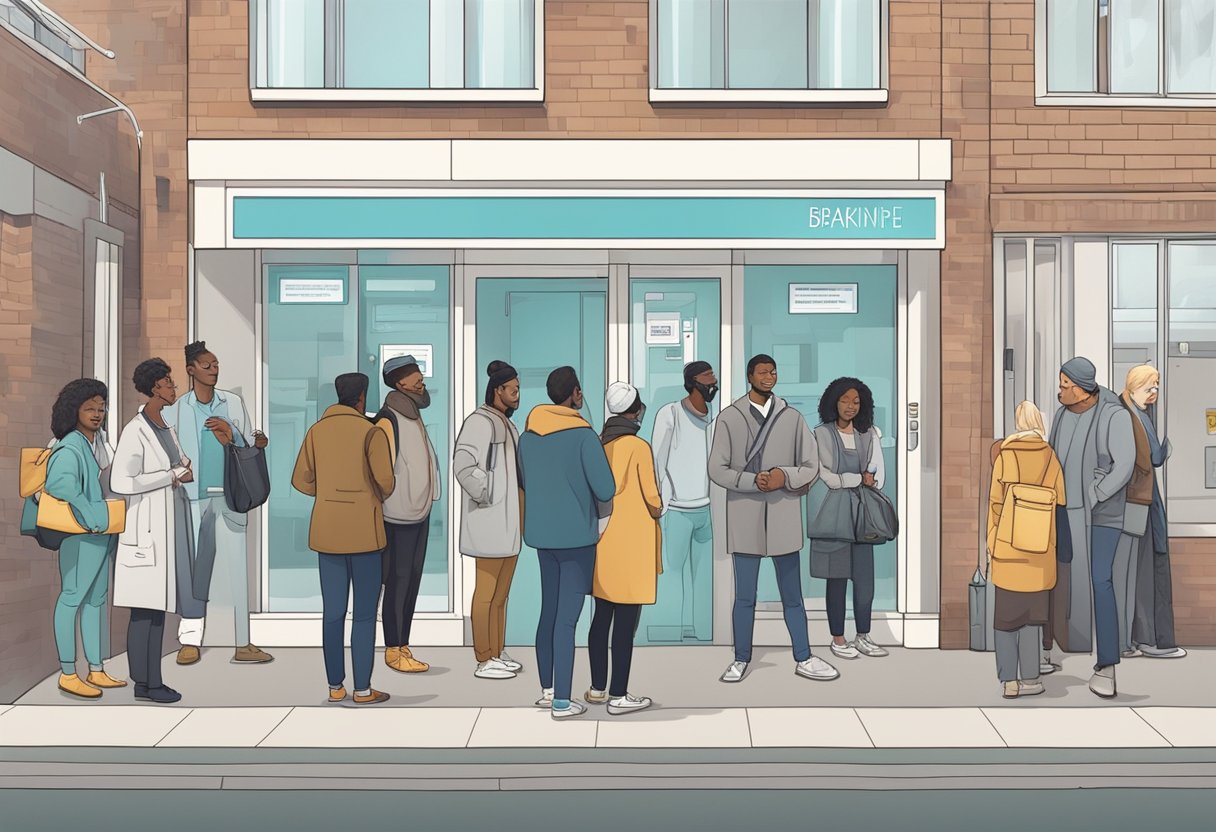If you are in a homosexual relationship and you want to have a baby, there are a few choices available to you.
Although rights for gay and lesbian parents have come a long way, there is still legislation in place that you should be aware of.
Let’s take a look at the options and what they mean to you.
Adoption
Legislation to remember:
Adoption & Children Act 2002 – this gave gay and lesbian singles and couples the right to adopt a child in the UK. The act was enforced from 2005.
In the UK, it is now legal for same-sex couples to adopt together or singularly as long as you can prove to the agency that you can meet a child’s every need.
Factors that will be considered include:
- Age – you must be at least 21 years old
- Wellbeing – you are expected to have overall good health
- Financial situation – this is to determine if you are financially stable enough to raise a child
It is against the law for adoption agencies to discriminate applicants for their sexual orientation.
If you apply as a single mum or dad, your partner can also apply to become a legal parent at a later stage.
Surrogates
Legislation to remember:
Human Fertilisation and Embryology Act 2008 – As an extension to the act in 2010, gay couples can now become the legal parents of surrogate children.
Prior to 2010, becoming an officially authorised parent as a gay man was only feasible through adoption. Nowadays, the primary option for having a child is to choose a surrogate mother.
There a few options available if you decide to take this path:
Traditional Surrogacy
This is when the surrogate is inseminated with the intended biological father’s semen. A gay couple may choose this option as it means the child may have generic characteristics of that partner.
IVF (in vitro fertilisation) & Egg Donation
This is when there is a surrogate and a separate egg donor. The eggs are removed from the donor’s ovaries to be fertilised with the sperm before being placed into the surrogate’s uterus.
Understandably, couples will often be keen to have as close a natural connection as possible. This can be achieved in a few ways:
- Certain clinics will safely combine the sperm of both parties with separate batches of the donor’s eggs. This can result in twins who have the same biological mother but different fathers. When one child is born, a DNA test determines who the paternal dad is.
- A female relative of one of the partners can act as an egg donor, fertilised with the sperm of the other partner, resulting in a true relation to both men.
- If a couple decide to have one child, and then have another at a later stage, they can use the other person’s sperm and same mother so that the children are related through the mother.
Parental responsibility does not make you the legal parent, so it is important to be aware of the rules around paternity.
The legal mother, in all circumstances would be the surrogate (even with donated eggs).
The legal father would be the genetic one (i.e. the partner whose sperm is being used), but only if the surrogate is not married, or the husband had not agreed to the process.
In order to attain parental responsibility, the intended father must complete a responsibility agreement.
To obtain full paternity, you can utilise a Parental Order which is a faster way of adopting in a surrogacy situation. This can be a complicated process, and it is best to have a surrogacy agreement up front and to consult a solicitor before applying.
Co-Parenting
Legislation to remember:
Legally, a child can only have one mother and one second parent. In some situations, a third person can obtain legal parental responsibilities.
Both gay and lesbian couples have the opportunity to co-parent. Co-parenting can involve keeping the sperm donor or surrogate involved in the child’s life. This method can benefit the child by knowing its genetic roots.
Although there is no formal legislation currently in the UK regarding this, it is highly recommended to establish an agreement that clearly states the responsibilities of each party.
By knowing your options and any situations you may encounter, you can make the best choice for you and your partner to create a family.
Sperm Donors
Legislation to remember:
Human Fertilisation and Embryology Act 2008 – Since 2009, homosexual women in the UK are equal to heterosexual women in regards to giving birth after sperm donation.
In order for lesbian couples to have a child, they will need a donor to provide semen. They may choose to have a friend donate, or request a sample from a sperm bank.
Whatever the choice, there are a few issues to consider in regards to who is named the legal parents:
- If the mother is in a civil partnership or is married, her partner will be recognised as the second parent.
- Where the women are not married or civil partners, the partner will only be the second parent if the mum was impregnated through fertility treatment in a UK licensed clinic. Both parties must also complete a selection of mandatory forms.
For a clear look at the paternity of the baby under UK law, view the Alternative Family Law flowchart.
Where Can I Find a Sperm Bank in the UK?
Every year since 2000 over 700 children have been conceived thanks to donor sperm conception in the UK. There are over 300 donors registered in the UK giving couples and individuals looking for a route into fertility another option. This data has been provided by the Human Fertilisation Embryology Authority and they are one of the leading bodies in the fertility sector. It is also a good place to start when looking to find a donor or a sperm bank.
The HFEA has a detailed search facility through which you can find clinics in your local area offering donor sperm and other fertility services. Each clinic has been approved and you can be assured of the legality of their practices. If you simply search on Google you may find clinics and sperm banks which are not so reputable.
Further Information
Utilising the HFEA search facility gives a lot of information regarding each clinic and you can check out some of the key statistics which may matter to you.
Rather than simply providing overall success rates you can take a look at more details including:
Live Births
As well as giving potential patient the number of live births per clinic they also give the predicted chance of a live birth for an average patient. They also show the live births per embryo for individuals concerned about the chance of multiple birth.
Types of Treatment
In the UK there are very few dedicated sperm banks that don’t offer other fertility treatments. You can search each treatment type and look in more depth at each stage of treatment and how it works at individual clinics.
Singleton Rates
Singleton rates are important for many couples who want to find out the chance of multiples and dependent on the clinic there may be different rates recorded. Multiple births are considered the largest health risk when having fertility treatment so understanding the likelihood of one occurring really can help in deciding which clinic is best for you and all clinics should provide the support you need if a multiple birth happens.
There are sperm banks and fertility centres in every part of the UK. You should be able to find a suitable local centre and there are both NHS and private clinics. Always visit the clinic you want to go to in advance and ask as many questions as you need. The right sperm bank and fertility services can make all the difference to your journey.








9 thoughts on “Options For Gay & Lesbian Couples Who Want A Child”
February 6, 2024 at 4:53 pm
Looking for a female couple or single to have a baby ..single parenting or co joint
August 12, 2017 at 9:23 am
I am a highly educated man, looking for a lesbian to get cover up marriage
Maybe there is another solution for this problem
May 22, 2017 at 1:39 pm
Hi
Me and my husband are looking for a woman who will help us have a child. We’re a gay couple who have been together for 11 years and in a Civil Partnership for 8, we’ve been wanting a child since we got married but had to wait until we moved into a big enough property which we finally have.
We tried going down the fostering route but got told that we didn’t meet the criteria as we don’t drive so might not ever be matched with a child.
We are financially stable but could never afford the money needed for surrogacy so now we’re looking for someone who would please help complete our family and help us have a child.
Hope to hear back from you x
October 22, 2016 at 10:08 am
have Lesbian Panter want her get DNA text she not my panter email me plasse thanks
March 24, 2017 at 5:02 pm
I am a bi sexually male looking for single woman or lesbian to have a baby with.
October 20, 2016 at 9:33 pm
I like to help any girls lesbian for children if who want let me know
April 22, 2016 at 10:14 pm
I love my soon going to be my husband. But i want to have kids. My own kids. Maybe there is lesbian whi have the same will as me. Lets talj and make our own babies.
September 9, 2015 at 9:26 am
Hey to all,
I understand that one of my colleagues may have posted previously, so apologies for the re-post. We are coming towards the end of our casting so it would be amazing if you could spread the word and let us know if anyone would like to take part.
I am posting in regards to a new ITV show that we are currently casting for. It is called “This Time Next Year” and it is going to be presented by Davina McCall. On the show people will come on and pledge in front of the nation a goal that they would love to achieve within the year. This could be a whole variety of things and we are looking for a wide range of different pledges. The reason I am contacting you all specifically is we would really love to feature couples looking to start a family and have a baby through various methods. We are looking for all types of couples and single parents to feature in the show who are happy to share their story.
It would be great if you could spread the word to anyone not on this thread. The show is going to be very positive and will be a great experience everyone who will take part.
Please do get in touch if you have any questions. It would be great to chat to you about this. My DD is : 02074278428 and feel free to get me on this email.
Thanks
Thomas
May 24, 2015 at 9:48 am
Hi, can anyone advise? my partner and I were unmarried when I got pregnant via a donor. If we get married will this make her the legal other parent? Could I also then put her on the birth certificate?
Many thanks